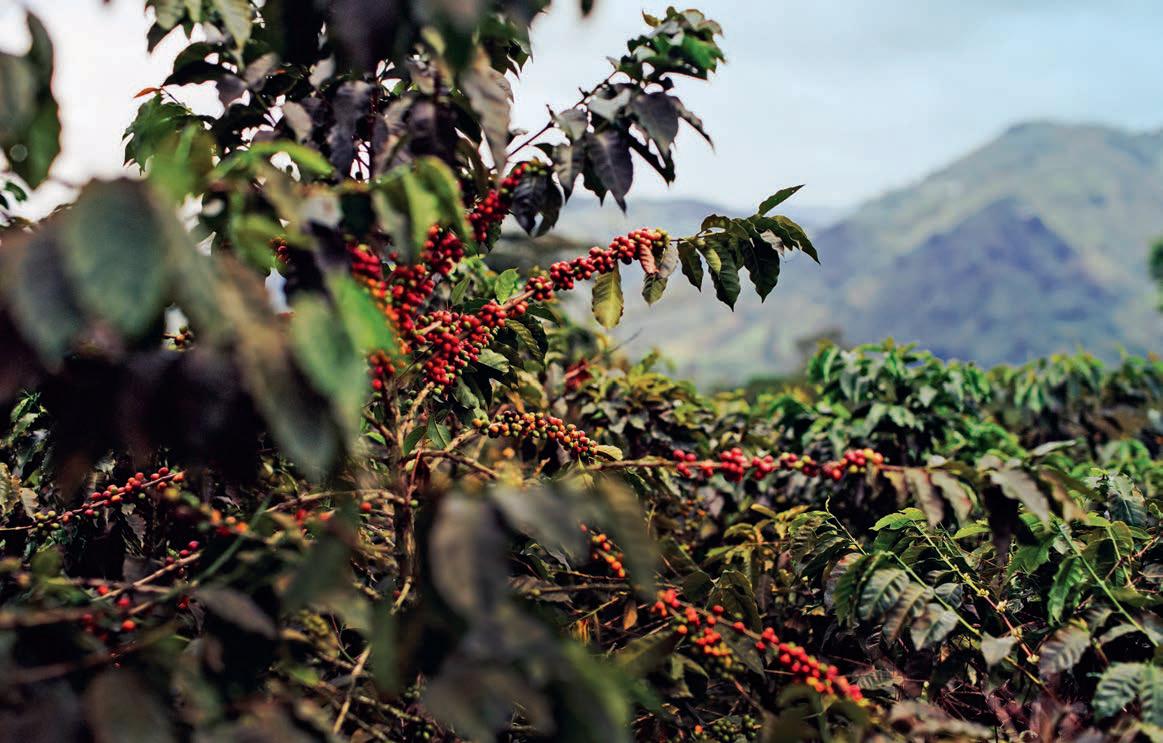What attracted you to the world of coffee?
Coffee is not that popular in Taiwan, so 11 years ago I came to London to learn from Australian people opening cafés here. I really enjoy the hospitality and community aspect. When people come to a café, I feel like they're in my living room. They've come to relax and I like being part of that. I'm also sharing something that I'm proud of because I've sourced the coffee. Tasting coffee was also a way of finding myself. It marked the beginning of my recovery from depression and bulimia. The more I began to focus on taste, the more I recovered. I felt more connected and fully present.
You hold a Q Grader certification, what does this mean?
It's an internationally recognised standard that stands for Quality Grader – a coffee sommelier. You score, give feedback and evaluate the coffee. I do it almost every day.
What is the 'cup score'?
To evaluate speciality coffee, we carry out a cupping process. The scoring is between 80 and 100, and the price for the coffee is then based on the quality. Sometimes there is a 1,000% price difference between a cup score of 83 and 88. The goal is to bring more sweetness into the coffee. If it's a high-quality coffee, we also highlight acidity, as positive acidity makes the coffee more complex and elevates the cup score.
What are the signs of a bad coffee?
You want a balanced bitterness but not one that's medicinal and lingering. Sometimes, if the drying process has taken place on the ground, it can taste earthy or sandy.
How do you ethically source coffee?
Origin started 20 years ago in Cornwall and its relationship with coffee producers goes back roughly 14 years. The producers we're working with share the same mindset and ethos about sustainable farming. We look at how producers treat the environment and their workers. Origin is also introducing a system with third-party firm inVeritas to verify its supply chain and responsible sourcing - and provide a report of producers' economic, environmental and social situation. I want to give something back and support local communities. The higher volume of coffee we buy, the more funds we have to support them.
image [https://cdn.magzter.com/1450191940/1737482156/articles/23JJFbMrf1737718650661/7773022107.jpg]
What countries have you visited to source coffee?
Brazil, Colombia, Peru, Nicaragua, El Salvador, Honduras, Burundi, Ethiopia, Rwanda and China.
What are the main challenges in the coffee market?
Coffee is a very price-sensitive business and, right now, the price is really high. There's a lot of uncertainty and coffee prices fluctuate based on their production. One challenge is currency. Coffee buying is priced in USD, so the value of the dollar affects prices. Sometimes we have to exchange from the local currency (Colombian Peso) to GBP and then to USD. Coffee is also affected by geopolitical and international issues. Who knew that the majority of fertilisers are produced in Ukraine? The war made coffee prices spike.
Has climate change had an impact?
Producers are st...


